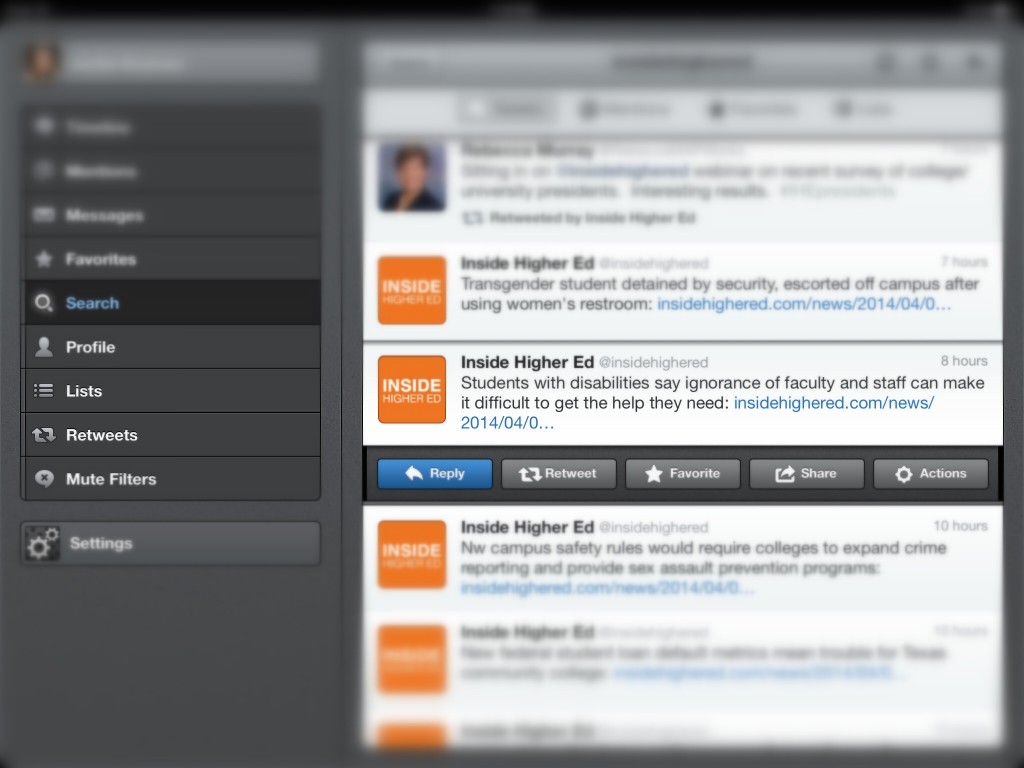Below is my dissertation abstract in its current form. Enjoy and please do let me know if you’d like a copy of the final draft!
This dissertation presents a phenomenological study of the experiences of students with disabilities during higher education. This study began due to the lack of literature available regarding the experiences of students with disabilities regarding their pursuit of higher education. The research focus grew from the enrollment rate inconsistencies between students with and without disabilities in higher education. The rate of enrollment of students with disabilities in higher education is significantly lower than the enrollment of students without disabilities. The reasons behind this are complex. It is affected by individual student’s choice to not disclose his or her disability, the transition preparation of the students with disabilities, and the experiences of students with disabilities at higher education institutions. Much of the literature focuses on data about students with disabilities, but little engages students with disabilities in the research.
A qualitative research design provided rich data. Data collected from individual semi-structured interviews was analyzed for themes and sub-themes. The interviews were correlated with observations and observer notes. Nine students with disabilities attending a Midwestern private higher education institution provided nearly nine hours of dialogue, observations, and notes to analyze. From this data, the following themes were extracted and listed here in order of strength, from least to greatest: identity (self-advocacy, self-worth), accommodations (academic life, support from others), social interaction, assumptions and stigma, and barriers. Specific observations or quotes were used to illustrate the existence of themes and sub-themes.
The illustrations developed from the data the student participants provided aided in designing the concluding arguments. The conclusion of the study invites administrators at the Midwestern higher education institution to examine the data analysis. Some of the student participants provided suggestions for improvement in the accommodation and support of students with disabilities. Additional suggestions for improvement were developed from the data. While the information provided from the student participants aided in appreciating the experiences of students with disabilities, more research is needed regarding the experiences of students with disabilities in higher education.
